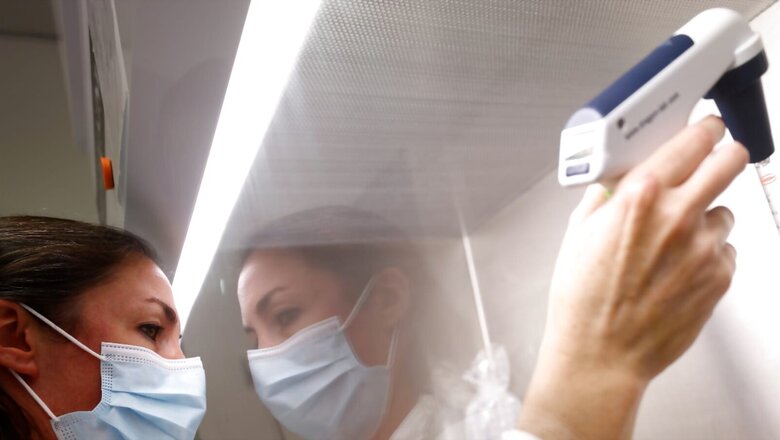
views
A team of researchers in New York City have found viral fragments with a unique collection of mutations for a Covid-19 variant that had never been discovered before. The researchers made the discovery while searching for traces of coronavirus in the city’s wastewater.
In the study published by these researchers, they said that so far there is no evidence to prove that these mutations can pose an elevated health risk to humans. The findings of the study were published in Nature Communications on Thursday.
The researchers have called these mutations ‘cryptic lineages’, which have continued to be found in the city’s wastewater. “At this point, what we can say is that we haven’t found the cryptic lineages in human databases, and we have looked all over,” said Monica Trujillo, a microbiologist at Queensborough Community College and an author of the new paper.
The researchers collected wastewater samples from 14 different treatment plants in New York City and in January of 2021, they began targeted sequencing of these samples, “focusing on part of the gene for the virus’s all-important spike protein”.
According to these findings, the detection of these lineages could help identify the origins of the next possible variant of concern.
“SARS-CoV-2 is shed in feces and can be detected by RT-qPCR in wastewater correlating to caseloads in sewersheds. Consequently, municipalities and public health organizations have employed wastewater surveillance as a public health tool to make informed decisions about COVID-19 interventions,” the study says.
Targeted sequencing, the researchers pointed out, can provide “high coverage of epidemiologically informative regions of the genome and importantly, can reveal which polymorphisms are linked, thus allowing SARS-CoV-2 variants of concern (VOC) in communities to be tracked.”
The findings were published after a research that began in March 2020.
Read all the Latest India News here


















Comments
0 comment